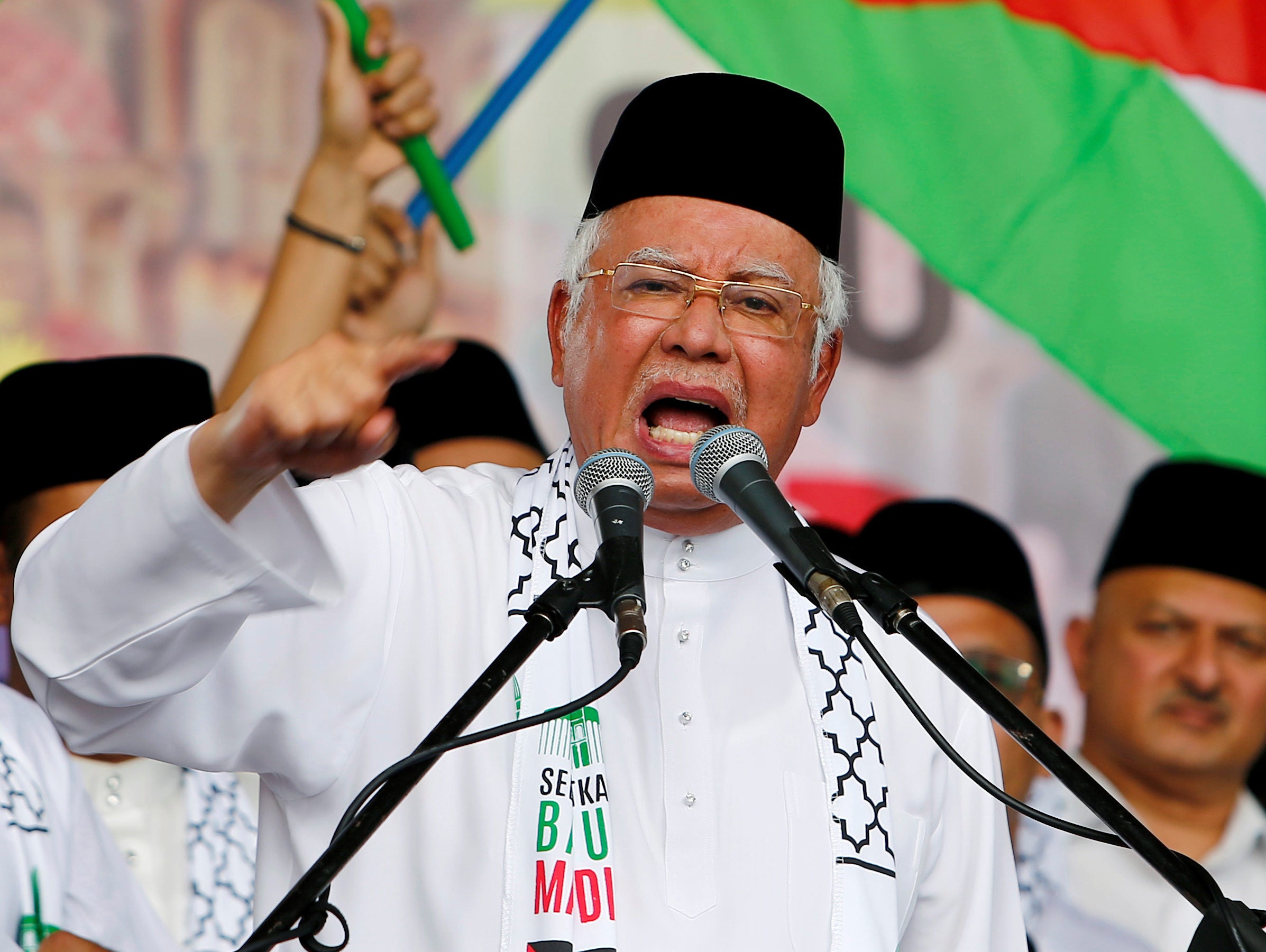
Malaysia’s government has proposed new legislation to outlaw “fake news” and punish offenders with a ten-year jail sentence – a move slammed by critics as a bid to crack down on dissent ahead of a general election.
Prime Minister Najib Razak (pictured) has been dogged by a multibillion-dollar corruption scandal involving an indebted state fund, and rights activists fear the new law could be used to criminalise news reports and critical opinions on government misconduct.
A general election must be held by August, but is widely expected in the next few weeks.
The anti-fake news bill, which must be approved by parliament, calls for penalties for those who create, offer, circulate, print or publish fake news or publications containing fake news of ten years in jail, a fine of up to 500,000 ringgit (£90,000), or both.
The bill defines fake news as “any news, information, data and reports which is, or are, wholly or partly false whether in the form of features, visuals or audio recordings or in any other form capable of suggesting words or ideas.”
It covers all mediums and extends to even foreigners outside Malaysia as long as Malaysia or its citizens are affected.
Opposition MP Ong Kian Ming tweeted: “This is an attack on the press and an attempt to instil fear among the (people)” before the general election.
Government officials have said the law is needed to protect public harmony and national security.
They have accused the opposition coalition of using fake news as a key weapon to win votes and warned that any news on the indebted 1MDB state fund that had not been verified by the government is fake.
The US and several other countries are investigating allegations of cross-border embezzlement and money laundering at 1MDB, which was set up and previously led by Najib to promote economic development, but which accumulated billions in debt.
The US Justice Department says at least $4.5bn (£3.18bn) was stolen from 1MDB by associates of Najib, and it is working to seize $1.7bn (£1.2bn) taken from the fund to buy assets in the US, potentially its largest asset seizure ever.
Najib, who denies any wrongdoing, has sacked critics in his government and muzzled the media since the corruption scandal erupted three years ago.
Support for Najib’s ruling coalition has dwindled in the last two elections. In 2013, it lost the popular vote for the first time to the opposition.
Yet analysts say Najib is expected to win a third term due to infighting in the opposition, unfavourable electoral boundary changes and strong support for the government among rural ethnic Malays.
Critics say the anti-fake news bill will add to a range of repressive laws – including a sedition law, a press and publications act, an official secrets act and a security act – that have been used against critics, violated freedom of expression and undermined media freedom.
Image: Reuters
Email pged@pressgazette.co.uk to point out mistakes, provide story tips or send in a letter for publication on our "Letters Page" blog
